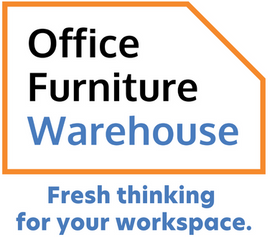Working at a desk is far from the most dangerous job you can have, but there are risks associated with sitting in front of a computer for forty hours a week. Here are some of the most common health and safety concerns for office workers and how to stay safe at your desk.
Repetitive Strain Injury (RSI)
The limited and repetitive movements related to sitting and typing on your computer all day long can lead to RSI. RSI is actually a general collection of symptoms rather than a specific diagnosis; it refers to pain in the muscles, nerves and tendons that results from repetitive overuse. Carpel tunnel syndrome, a condition caused by a compressed nerve in the wrist, is the best-known type of RSI.
An ergonomically set up desk is a great way to reduce the risk of RSI, as they have been scientifically designed to prevent strains, promote health and increase productivity. Taking a short break once an hour to stretch your arms and move your wrists also keeps RSI at bay.
Back Aches and Pains
Sitting down in one position all day can lead to back aches, neck pains and sciatica. Today’s office furniture industry has made huge strides in the area, offering a wide array of office furniture that helps support a healthy office worker. Sit-stand desks, desk chairs with lumbar support and modern activity-based seating options are all ways that your office furniture can promote better posture and healthier bodies among staff members.
Eye Strain
Did your parents ever tell you that sitting too close to the television screen would damage your eyes? This scare tactic was employed by parents everywhere, but the reality is that staring at a computer screen at close distance all day long can cause eye strain, which includes sore or dry eyes, headaches and blurry vision.
Adjustable computer screens help limit eye strain, but the best thing you can do is make sure to look away from the computer screen once an hour, giving your eyes brief but regular breaks from the glare of the screen. And make sure to wear glasses if needed so you aren’t squinting, which will worsen strain.
Seasonal Affective Disorder
Office workers are often inside most of the day, which in winter can mean that they rarely see the sun. Arriving and leaving in the dark can be hard on morale, leading to a condition known as Seasonal Affective Disorder or SAD. Everyone is at risk of the winter blues, but there are ways to keep office workers smiling through the colder months. Fun social club activities and lunchtime walking groups help, as promoting a positive and healthy office culture.


